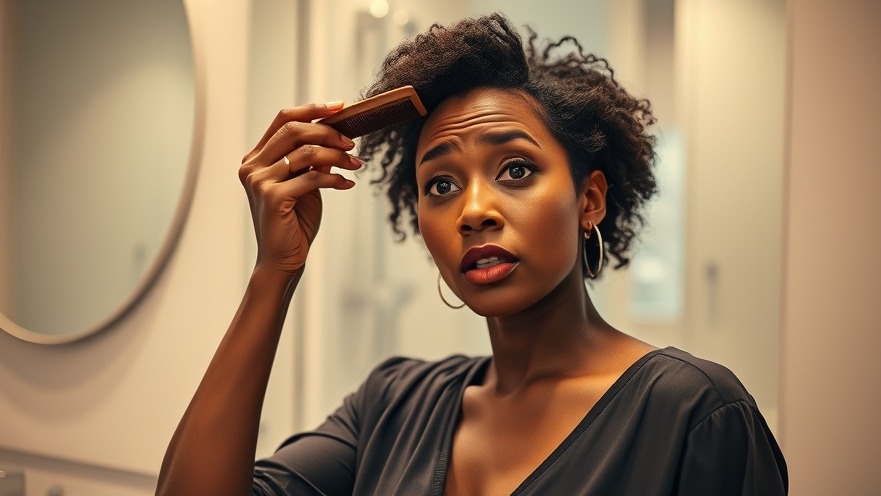
Why Is Your Hair Falling Out? The Surprising Role of Vitamins
Have you ever noticed more hair on your brush or in the shower? You might be surprised to learn that your diet, particularly your vitamin intake, plays a significant role in hair health. The short video, 'Your Hair Is Falling Out Because of THIS Vitamin,' highlights a critical nutrient that many overlook—biotin. This article dives into the importance of biotin and how it can help manage hair loss.
In 'Your Hair Is Falling Out Because of THIS Vitamin,' the discussion dives into the crucial role of biotin in hair health, leading us to explore its significance further.
Understanding Biotin: The Hair Growth Hero
Biotin, also known as Vitamin B7, is essential for your body's health, but it’s particularly famous for its impact on hair strength and growth. It supports the fatty acid synthesis necessary for maintaining healthy hair follicles. Without enough biotin, your hair may become brittle and fall out. A deficiency in biotin can directly lead to thinning hair and even alopecia, making it crucial to incorporate biotin-rich foods into your diet.
Biotin-Rich Foods: Fuel for Your Hair
To ensure you're getting enough biotin, consider adding the following foods to your daily meals:
Eggs: A great source of biotin, most certainly found in the yolk, eggs can serve as a versatile ingredient in your recipes.
Nuts and Seeds: Almonds, walnuts, and sunflower seeds are rich in biotin and healthy fats that improve overall hair and skin health.
Leafy Greens: Spinach and broccoli not only contain biotin but are also packed with essential vitamins and minerals that are beneficial for your body.
Legumes: Peas and lentils are excellent plant-based sources of biotin, helping boost both your energy and hair vitality.
Including these foods in your diet will pave the way for healthier hair and provide your body with other vital nutrients at the same time.
The Broader Impact of Vitamin Deficiencies
While biotin is crucial, it's worth noting that hair loss can be attributed to deficiencies in other vitamins as well—such as Vitamin D, Vitamin E, and even iron. Research indicates that Vitamin D is essential for creating new hair follicles, while Vitamin E acts as an antioxidant that supports a healthy scalp. A well-rounded diet is vital to avoid mineral deficiencies, ensuring your hair remains strong.
Incorporating Vitamins: Practical Tips
All this talk about vitamins can feel overwhelming, but incorporating them into your routine doesn’t have to be complicated. Try these actionable insights:
Meal Prep: Dedicate a few hours each week to prepare your meals. This helps in incorporating a variety of nutrient-rich foods seamlessly into your lifestyle.
Supplements: If you struggle to get enough vitamins from food alone, consider taking supplements after consulting a healthcare professional.
Stay Hydrated: Drink plenty of water, as hydration is key to maintaining healthy skin and hair.
Ultimately, being proactive about your vitamin intake can lead to noticeable changes in your hair and overall health.
Embracing a Holistic Approach to Hair Health
In conclusion, hair health is a reflection of your overall wellness. By focusing on biotin and other essential nutrients, you can create an effective strategy to combat hair loss. Importantly, listening to your body and adjusting your diet to meet your nutritional needs can yield impressive results. Remember, cultivating healthy hair is a journey; be patient with yourself as you embark on this path.
Let's take action today! Start integrating biotin-rich foods into your meals, and if necessary, explore the possibility of supplementation. By prioritizing your vitamins and nurturing your body, you're investing in not just your hair, but also a healthier, happier you.
 Add Row
Add Row  Add
Add 




Write A Comment